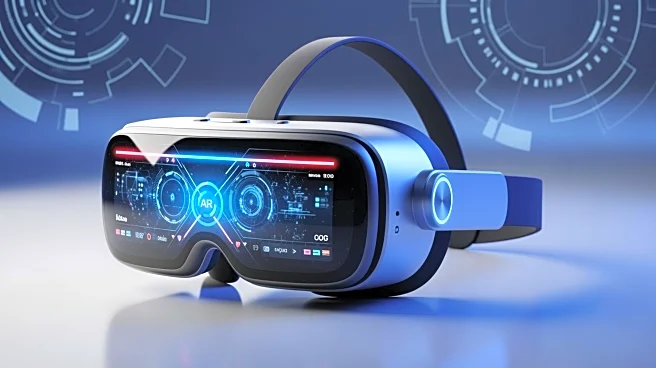What's Happening?
Meta has introduced new augmented reality (AR) products, including the Orion prototypes and Ray-Ban display glasses, which feature real applications and a tiny display in one lens. These products are part
of a broader trend in 2025 where tech giants and startups are pushing AR technology into public demos and pilot fleets. Amazon has announced AI smart glasses for delivery drivers, aiming to reduce phone checks and improve route efficiency. Brilliant Labs is launching the Halo, an affordable AR device with practical features like name recall, shipping in late November 2025. The Ray-Ban Meta glasses have been upgraded with improved battery and camera specs, showing increased commercial traction. Apple is recalibrating its AR strategy, retaining hardware and software options for future consumer glasses.
Why It's Important?
The introduction of these AR products signifies a shift towards mainstream adoption of augmented reality technology. Meta's and Amazon's innovations could transform consumer experiences and enterprise operations, offering hands-free navigation and productivity enhancements. The affordability of products like Brilliant Labs' Halo could lower barriers for consumers, potentially increasing AR adoption. The collaboration between Google and Samsung on Android XR aims to standardize AR development, which could accelerate app availability and reliability. These developments could redefine how consumers interact with technology, impacting industries such as retail, logistics, and personal computing.
What's Next?
As AR technology becomes more integrated into daily life, businesses and consumers may begin to pilot practical use cases, such as employee training and route guidance. The success of these pilots could drive further investment and innovation in AR technology. Companies like Apple may re-enter the market with new products, potentially resetting consumer expectations. The continued development of developer platforms and AI will likely drive new use cases, influencing both consumer and enterprise markets.
Beyond the Headlines
The ethical implications of AR technology, such as privacy concerns and data security, will need to be addressed as adoption increases. The cultural impact of AR, including changes in how people interact with their environment and each other, could lead to long-term shifts in societal norms. The legal landscape may evolve to accommodate new technologies, influencing regulations and standards.








